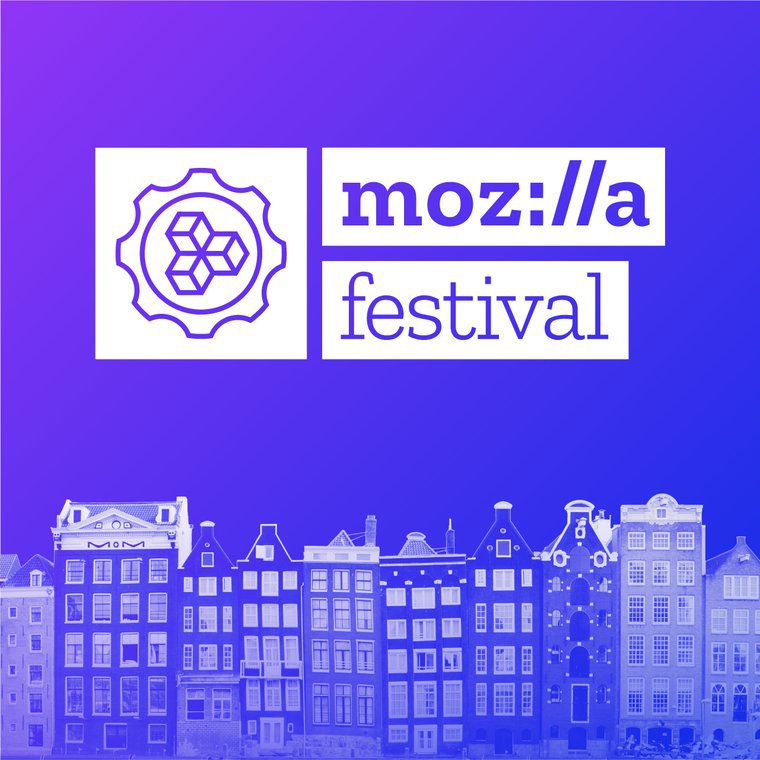
I recently had the pleasure of sitting down with Coil CEO and Founder Stefan Thomas to hear his thoughts on the state of the web and MozFest. What I found most inspiring was Stefan’s ambition for changing the way the web is monetized to give open source and indie developers a fighting chance.
Coil has been MozFest’s Presenting Sponsor the past two years.
Q. This is Coil’s second year as a MozFest Sponsor. What made you want to support the festival again?
When I was younger and just starting as a web developer, I benefited from all the amazing work coming from the open-source world so I really want to support this community in any way that I can. The company I started, Coil, is built around supporting open technologies, and MozFest is a great place to engage developers and others interested in this technology. It’s also a great place to find like-minded people. This made it a pretty easy decision to get involved, and we are fortunate enough to be able to sponsor.
Q. Can you tell the MozFest audience a little more about Coil and where you see alignment with Mozilla’s mission?
The web has never really had a business model that is truly native. Giving the web an open business model would be a great way to recapture the attention that the big proprietary platforms have sucked out of the room. We wanted to find a way to properly monetize open-source so that more developers can do more of it.
People have built some cool solutions, like Patreon, to challenge the business model pushed by big platforms. But, they are still ultimately proprietary. It is really important to have an open option for the web, so that is what Coil is trying to do. Right now, it is a $5 a month membership that pays a bit of money to developers of each website you visit via a browser extension. But, we think that will evolve. We use a general payment protocol so you can build a lot of different things on it, and we want to unlock more of that capability over time.
Q. And how are you showing up at MozFest this year?
We are working closely with the Interledger Foundation and Grant For the Web to create interactive sessions, workshops, and discussions. You can check out a full list here.
Q. Do you have a favorite MozFest story?
I’ve been interested in attending MozFest for many years. But something always came up that kept me away. So, as sad as it is that we can’t all meet in person, I’m pretty excited about a virtual MozFest because it’s the first one I can actually attend. A sort of silver lining of having a virtual festival is that, in some ways, it is more inclusive and I’m excited to see what people do with the new format.
Q. If you could change one thing about the internet today what would it be and why?
I would change the business model of the web and open source -- the way we monetize content. I know that it can be quite controversial in some communities to add payments into something that is purely altruistic. It is not easy to get right. At the same time, openness, having choices and more control over our devices and data is so important. We shouldn’t just resign ourselves to all developers being hired by these centralized companies because they can simply offer more money. It might be a long time before you can make more money on open technologies as compared to centralized platforms. But even being able to make a decent living will be a huge improvement on what we have today. I want to give the people who have the right ideas and the right values a way to turn that into a career.
Q. Any opportunities coming out of the challenges of the past year?
The first thing that comes to mind is that we’ve become so much more dependent on technology. In-person interactions have been replaced with video calls, and so much of how we understand the world has been replaced with what we see on the internet and social media. It puts a spotlight on how much control over our lives we’ve given to a very small number of companies.
The upside is that a lot of people have had a similar experience and are awakening to the problems. At Coil, we’ve seen an increase in support this past year and more people are fighting back. Epic Games challenging Apple and governments launching antitrust lawsuits against Big Tech are good examples of this.
Q. Anything else you’d like to add?
Yeah, I want to send a message to everyone who, like me, values openness and wants to fight back -- whether they are a developer, artist, social advocate, or entrepreneur. You’re not alone. Sometimes it seems like an incredible challenge because there are these big companies we have to go up against. But their power comes from their massive user base and that can shift very quickly. With the rising awareness, we are currently in a really powerful moment and closer than ever before to a breakthrough. With everything weighing on us right now from the pandemic to politics, it is easy to become negative. Yet, what gives me a lot of hope and energy is thinking about all the others out there believing the same and knowing that I’m not alone in this fight.

MozFest is part art, tech and society convening, part maker festival, and the premiere gathering for activists in diverse global movements fighting for a more humane digital world. To learn more, visit www.mozillafestival.org.
Sign up for the MozFest newsletter here to stay up to date on the latest festival and internet health movement news.







